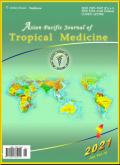公众对印尼第一卫生设施服务质量的满意度:社会人口因素重要吗?
IF 1.6
4区 医学
Q3 PUBLIC, ENVIRONMENTAL & OCCUPATIONAL HEALTH
引用次数: 0
摘要
目的:调查印度尼西亚第一卫生设施服务(FHFS)质量满意度的个体特征。方法:本横断面研究分析了国家代表性数据。同时,该研究在2019年涉及9846名代表性受访者。基于服务质量五个维度(SERVQUAL)的被调查者对FHFS的满意度是一个因变量。自变量包括性别、婚姻状况、年龄、教育程度、就业、保险所有权和经济状况。本研究采用多元逻辑回归分析个体特征与FSHS质量之间的关系。结果:77.3%的被调查者对家庭健康服务的满意度最高,满意度维度依次为保证(59.4%)、共情(57.3%)、信度(53.6%)、反应性(52.7%)和可触性(49.1%)。多变量逻辑分析显示,离婚的满意度比未婚的高1.48 (95% CI 1.17-1.87)。雇员的满意度比失业者低0.77 (95% CI 0.70-0.86)。接受过高等教育的受访者满意度比接受过初等教育的受访者低0.82 (95% CI 0.67-0.99)。与此同时,有政府经营保险的受访者比没有保险的人满意的可能性高1.61(95%可信区间1.42-1.80)。此外,富人的满意度比穷人低0.82 (95% CI 0.73-0.92)。结论:社区对FHFS的满意度总体较高,但仍存在一些有待改进的地方。人口因素仍然与满意度评级密切相关。政府可以按照标准对服务质量进行评估,并向社会各阶层宣传基层设施的服务标准,确保各群体的服务满意度都是良好的。本文章由计算机程序翻译,如有差异,请以英文原文为准。
Public satisfaction with the quality of First Health Facility Services in Indonesia: Does sociodemographic matter?
Objective: To investigate individual characteristics related to satisfaction with the quality of First Health Facility Services (FHFS) in Indonesia. Methods: This cross-sectional study analyzes national representation data. Meanwhile, the study involved 9846 representative respondents in 2019. Respondent's satisfaction with FHFS based on the five dimensions of service quality (SERVQUAL) is a dependent variable. Independent variables consist of sex, marital status, age, education, employment, insurance ownership, and economics. The study used multivariate logistic regression to explain the relationship between individual characteristics and FSHS quality. Results: 77.3% Respondents were satisfied with FHFS, with the highest order of satisfaction dimensions being assurance (59.4%), empathy (57.3%), reliability (53.6%), responsiveness (52.7%), and then tangibility (49.1%). Multivariate logistic analysis showed that divorce was 1.48 more likely than never-married to be satisfied (95% CI 1.17-1.87). Employees were 0.77 less likely than the unemployed to get satisfied (95% CI 0.70-0.86). Respondents with higher education was 0.82 less likely than those with primary education to be satisfied (95% CI 0.67-0.99). Meanwhile, respondents who had government-run insurance were 1.61 more likely than uninsured to be satisfied (95% CI 1.42-1.80). Moreover, the rich were 0.82 less likely than the poor to get satisfied (95% CI 0.73-0.92). Conclusions: Community satisfaction with FHFS is generally high, though some areas could be improved. Demographic factors are still strongly related to satisfaction ratings. The government can assess the quality of services in accordance with standards and disseminate information about service standards for primary facilities to all levels of society, ensuring that service satisfaction is rated as good by all groups.
求助全文
通过发布文献求助,成功后即可免费获取论文全文。
去求助
来源期刊

Asian Pacific journal of tropical medicine
PUBLIC, ENVIRONMENTAL & OCCUPATIONAL HEALTH-TROPICAL MEDICINE
CiteScore
4.00
自引率
9.70%
发文量
1936
审稿时长
3-8 weeks
期刊介绍:
Asian Pacific Journal of Tropical Medicine (ISSN 1995-7645 CODEN: APJTB6), a publication of Editorial office of Hainan Medical University,is a peer-reviewed print + online Monthly journal. The journal''s full text is available online at http://www.apjtm.org/. The journal allows free access (Open Access) to its contents and permits authors to self-archive final accepted version of the articles on any OAI-compliant institutional / subject-based repository.
APJTM aims to provide an academic communicating platform for international physicians, medical scientists, allied health scientists and public health workers, especially those of the Asia-Pacific region and worldwide on tropical medicine, infectious diseases and public health, and to meet the growing challenges of understanding, preventing and controlling the dramatic global emergence and re-emergence of infectious diseases in the Asia-Pacific.
The journal is proud to have an international and diverse editorial board that will assist and facilitate the publication of articles that reflect a global view on tropical medicine, infectious diseases and public health, as well as emphasizing our focus on supporting the needs of public health practitioners. The APJTM will allow us to seek opportunities to work with others who share our aim, and to enhance our work through partnership, and to uphold the standards of our profession and contribute to its advancement.
 求助内容:
求助内容: 应助结果提醒方式:
应助结果提醒方式:


